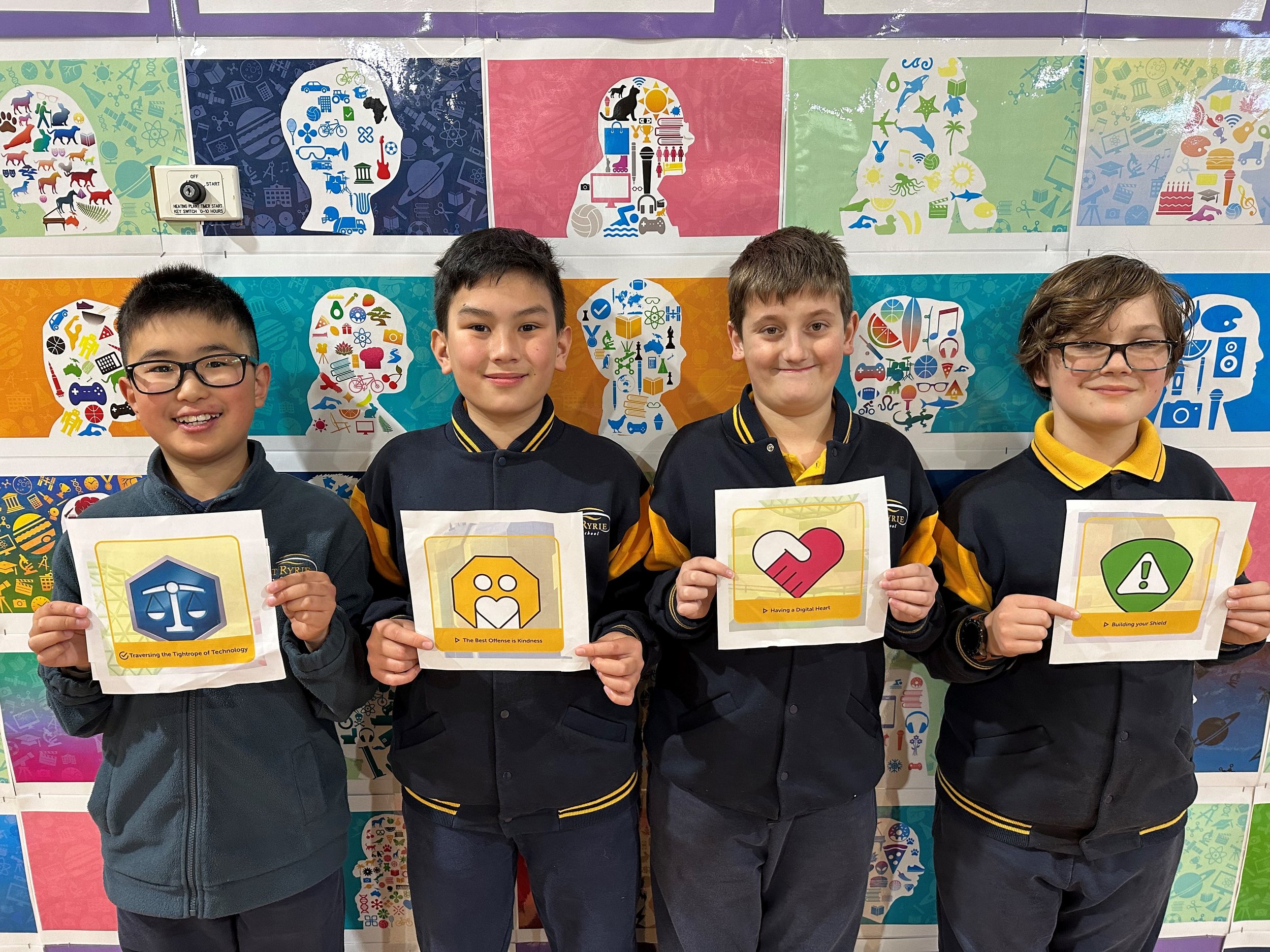Digital Literacy by eSmart
Written by eSmart - resourced by the Alannah & Madeline Foundation
For young people in Australia, digital literacy is no longer just an advantage – it’s a necessity.
Children are entering online spaces earlier in life than ever before, and risks in the digital world evolve quickly. As a result, the fast-moving world of digital literacy education is often left on the backburner.
In a bid to address this, The Alannah & Madeline Foundation has launched two groundbreaking programs aimed at 10- to 15-year-olds – the Media Literacy Lab and Digital Licence+. Now, with funding from the Australian Government, these programs are available free to every school child in Australia.
According to Peta Simpson, eSmart Engagement Manager at the Foundation, both programs have been designed to tackle some of the most worrying trends in the online space. Through the programs, children and young people are then empowered to confidently tackle challenges they may encounter using technology.
“The four key topic areas in the Digital Licence+ are kindness, empathy, self-regulation and vigilance,” Simpson explains.
“We usually find it’s used when students get their device for the first time. It might also be a curriculum requirement, or it might be in response to something that has occurred in the school community or where there’s clearly a knowledge gap.”
“The Media Literacy Lab works on media literacy skills and interrogating the information that we see online,” Simpson explains.
“It focuses on asking the questions – is it real? Is it an opinion? Where did I get it from, and is the source reputable?”
All of the Foundation’s programs recognise the vital impact that teachers have on learning, and they include a strong element of digital literacy support for the adults in the classroom.
A teacher's perspective
Like many teachers working in classrooms across Australia, Jess recognised that both she and her students were facing challenges with technology and the role it was playing in all their lives. Teaching ICT classes with year 5 and 6 students in Melbourne’s outer suburbs, Jess explained that the tech that her students were using was “not something that teachers had grown up with”.
“Teachers want to teach the children how they can be safe online, but we need support to do that – it’s not something that is completely inherent to us,” explained Jess.
It was from this place of concern that Jess uncovered the need to implement the eSmart Digital Licence+ (DL+) in her classroom.
Jess intentionally implemented the product with her class at the start of the year, as a way to set expectations on tech use. She worked with all the students to reach benchmarks within DL+, with some students even choosing to come in during lunchtime so that they could get up to speed. Over the holidays, to ensure learning continued at home, Jess gave the students tech-gether activities that they could complete with their families.
While Jess identified some really important positive outcomes from including DL+ in her classroom, the learnings that the children in her class identified were the most important. Ryan explained that he learned that “even though I really love technology, it’s important to balance my use or I’ll get disconnected from friends and family”.
Magnus shared that “I learned that an upstander is a person who stands up to cyberbullying but they can also be someone who supports a victim”.
Austin said he learned “that it’s everyone’s responsibility to create a pleasant culture online by always being kind and thinking about the feelings of others.”
And finally, Judah learned “how to spot phishing attempts such as the big red cross which appears to be a close button but is actually a link that can send you to a dodgy page!”
There are many ways in which the lessons that children learn while attaining their Digital Licence can improve the learning environments and empower them as individuals. Before completing Digital Licence+, Jess explains that
“the children were getting upset about their photo being taken by their peers. By completing the module that talks about the need to ask for consent, they then better understood how and why they needed to ask for consent.”
Jess saw that the process helped the children to feel empowered and they are now proactively telling teachers that consent is a really important thing when capturing photos – because a photo can be there forever, and they know that now.
Jess emphasises that “children are on technology now and forever”. She believes that online safety and wellbeing need to be taught explicitly and not after the fact,
“we need to be teaching them how to stay safe online before anything happens, not in reaction to something bad happening. They need to know how to keep their information safe, how to be kind to one another.”
She identified that teaching students about online disinhibition was one of the most useful aspects of eSmart Digital Licence+, sharing that it “helped the students in my class to treat their friends more kindly online.”
To find out more about Digital Licence+ and the Media Literacy Lab, click here: www.alannahandmadeline.org.au/what-we-do/prevention-programs/esmart
eSmart - resourced by the Alannah & Madeline Foundation are a Spotlight Sponsor of the National Education Summit Melbourne.


